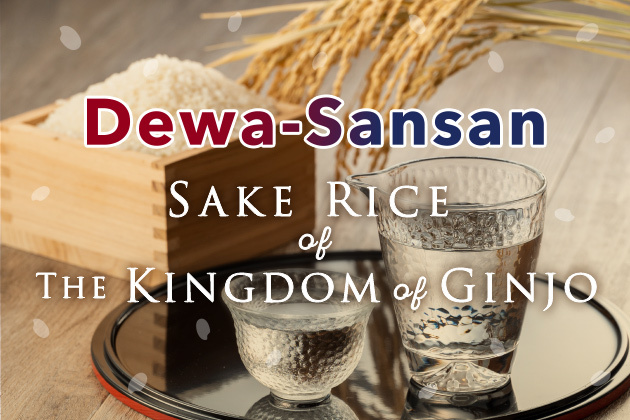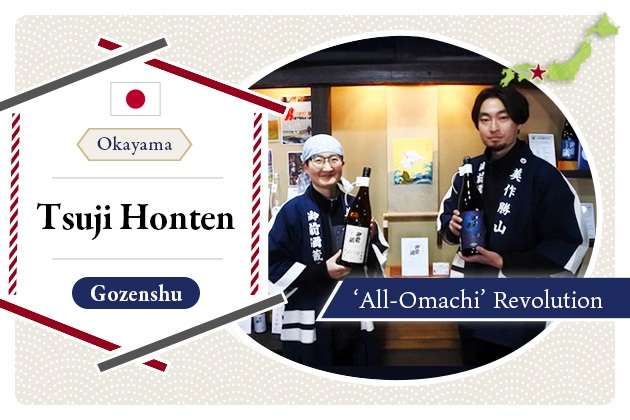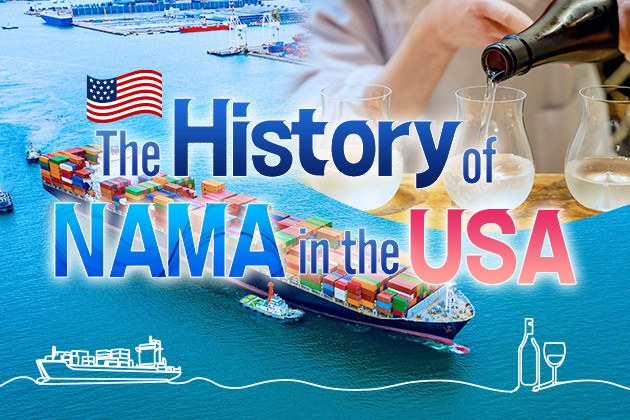
2023.10
25
Making Sake Trendy in Brooklyn, New York - Brooklyn Kura
Industry City is a spot that has been attracting a great deal of attention from fashion-conscious hipsters in Brooklyn of late. There is now a craft sake brewery in this refurbished commercial complex which was originally old warehouses and factories. The complex also now includes art galleries, food markets and trendy shops.
Brooklyn Kura is the first sake brewery in New York, established by Brian Polen and Brandon Doughan in January 2018. The brewery attracts crowds of New Millennials (defined as the generation born between 1981 and 1996) who love novel things and discovering what sake is all about.
*This article was originally published in June 2020.
Financial Analyst Meets Biochemist
In a corner of Industry City, you open a heavy blue door with Brooklyn Kura’s logo engraved on it to reveal a spacious, beer-bar-like space. The stylish taproom is designed by local design studio Carpenter + Mason, which has retained the feel of a former factory with colorful accents in several places.
The combined area of the taproom and brewery is approximately 2,500 square feet.
“We are a little larger than any of the US craft sake breweries,” says Polen. “That’s primarily because it’s very difficult to justify the amount of investment that you need to build a sake brewery unless you’re able to produce a certain amount of sake. So the business in my mind didn’t make sense unless we had a certain capacity.”
Polen, who is in charge of the business side of Brooklyn Kura, explains why it’s so big. “I have a broad kind of business and operational experience and have led teams and organizations for quite some time, which is helpful for this project,” he adds about his background as a former technical analyst for American Express.
Polen met Doughan, co-founder and toji (brewmaster), at a mutual friend's wedding in Tokyo in 2013. Since the two hit it off because of their mutual love of sake, they got excited about their plan to open a sake brewery in the US.
Doughan used to be a biochemist working on medicines for cancer and heart disease.
“There are maybe two different approaches for sake breweries in Japan. Some sake breweries, you need to put on a whole outfit, like making microchips. There are laboratories that are very big and everything is very analytical. Definitely having a research background helps with being able to measure how many variables there are in sake,” Doughan says. “But at the same time, I don't want to base everything just on exact measurements. I want to have the freedom to serve, being creative as well. So I kind of walk between both worlds.”
Reasons for a Diverse Line-up
Brooklyn Kura’s regular products are the light and floral junmai ginjo "#14", the full-bodied junmai sake "Blue Door", and "Grand Prairie", which is a junmai ginjo made entirely from Yamadanishiki grown in California. Most of the rice used to make sake in the U.S. is Calrose, which is derived from "Wataribune," a kind of sake rice. In addition to this, Brooklyn Kura is also using Yamadanishiki, which has recently started to be grown in the United States. Grand Prairie is the first product made entirely from Yamadanishiki.
“It's probably the lightest sake taste that we make,” Doughan says. “The big difference is how hard the rice is. Calrose is a very hard rice, so the soak time is sometimes twice as long as Yamadanishiki. I also feel that maybe Calrose has more protein content, so it lends itself well to a junmai sake.”
In addition to these regular products, they typically offer a rotation of seven to eight different types of sake at their taproom, including limited-edition sake that can only be consumed on site. They've served unique products such as the #14 shiboritate (freshly pressed), white koji-based "Citrix" and the hoppy-ish "Occidental".
“People in beer and wine are used to a variety and so they want to see a range,” Polen says. “We want to prove that we’re able to make a beautiful traditional style of sake and gain the respect and support of the Japanese sake community, but at the same time, we are in the U.S. and our consumers have different preferences. We have to build interest and excitement for people looking for exciting new things.”
Inspiration from Craft Beer
Behind the counter in the taproom, there's a row of draught towers, usually used for draft beer. When an order comes in, they pull a lever to pour fresh sake. “In a more casual way serving it in wine glasses, making it something that American consumers can interact with more easily is having an impact - I would like the industry to grow faster,” Polen says.
Doughan, who is in charge of the brewing, also says that Brooklyn Kura takes a lot of cues from the culture of craft beer.
“We were just thinking about how beer became so popular in the States. Beer used to be just boring. And then, when European beers such as German styles came to the US, Americans started doing their own things with it.”
“You know, sometimes Americans take things from other cultures and they really mess them up,” Doughan laughs. “But once in a while, you get like an American IPA, which you can find all around the world. Now, that's something and we made it our own. I think part of that has to happen."
As for the untraditional products, “When we're doing something experimental, we say that's what it is.”
“We try not to overwhelm people because we want people to be comfortable. But we also don't want to present something that isn't sake. So we do stick with traditional methods and terminology because we are presenting something to people for the first time. We don't want to misrepresent it.”
Under the COVID-19 Situation
In 2020, New York State went into lockdown in March to control the spread of COVID-19 that caused the global pandemic. At the time of its implementation, Brooklyn Kura was in the middle of construction to expand their facility. The partners were in the process of building a rice wash in their newly purchased space so that more visitors to Industry City could see the brewing process.
They stopped construction, and laid off some of their staff, which had been six in all before. Sake production was also stopped temporarily. As of June 6, 2020, when I interviewed Doughan online, they were in Phase 1 of the phase-out of the lockdown. Their taproom was still prohibited from opening while manufacturing and construction had resumed.
In response to this situation, Brooklyn Kura has launched a monthly membership system called "Kura Kin" on the online store of its official website. This is a new approach to delivering a different limited edition and draft sake set each month to customers in four states, New York, Washington DC, Florida and Minnesota. Doughan used his time during lockdown to brew in small batches. The variety of sake he has created is now available as a monthly limited edition.
“Once we finally finish this construction, we'll probably re-employ kurabito (brewers) and use their efforts. We have to try to reach the maximum capacity we can in the new space.”
Brooklyn Kura has a keen ability to navigate the rigors of big city business and a creative spirit that isn't afraid to take on new challenges as they steadily move forward. The future of sake in New York City is with the new drinkers they create.
*Translation support: Sake Brewers Association of North America
Pickup Articles
2019.01.18
2019.01.25
Trending Articles
Popular Articles
Recent Articles













